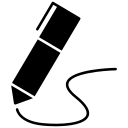It's Fall 2022 and the masks are off. Well, officially, masking is a "personal choice".
Leadership has dropped the COVID ball and is hoping that nobody is going to pick it up again.
So what's left to do? Continue to mask, provide alternatives for everyone that don't require in-person gathering (classes, labs, meetings), get vaccinated and put air purifiers in your office, lab and classroom. You can be public and visible about it if you're comfortable doing so, or you can be discrete about it. Either way, you're making a positive difference.
And there's one more important thing to do: report any and all suspected cases of COVID at work and school. It's time for all of us to engage with the workplace health and safety mechanisms that pre-date COVID to make our schools and workplaces safer.
This means that if you spot someone who appears to be sick, fire off an email to the person or group that is responsible for workplace health and safety. All you have to say is "I was in my classroom and so-and-so came to see me and was coughing, unmasked around me -- I think that I was exposed to COVID or some other respiratory illness." Doesn't matter if you were masked or not. It could be in your office, lunch room or classroom. You don't need to ask that person if they have COVID. Just report that you suspect being exposed.
So, who do you contact? Here are some possibilities:
- Your boss (Principal, Department Head, Dean, etc.). Could be impossible or impractical due to power dynamics and personalities -- move on to an alternative if that's the case.
- Your workplace health and safety representative. In Ontario, these people are often part of a Joint Health and Safety Committee and your union may hold a seat on the committee. A York University, look up your JHSC rep here.
- The Employee Well Being (EWB) group. At York University, if you're an employee, you can just email ewb@yorku.ca and let them know that you suspect being exposed.
- If you're a student, contact the group responsible for Case and Contact Management. At York University, students can send an email to YORK-StudentCCM@yuoffice.yorku.ca and just say that you suspect being exposed to COVID or some other respiratory illness. Provide class number, room number and any other information that you feel comfortable reporting. Don't know or want to reveal the name of the person? You don't need to. In a class of 500 students, you probably don't and that's not necessary for the incident to be recorded.
- Finally, if it's you that is sick, you can self-report. At York University you can do that through the screening system, YUScreen. With isolation requirements having been dropped there is little negative consequence for self-reporting, but it will give us a better picture of case counts in the community.
I'm a member of both my unit's Joint Health and Safety Committee and York University's Health and Safety Executive Council. I have personally seen the aggregate, anonymized data on COVID transmission at the University. I know that it is being collected and that it is being presented to leadership. With the data we can take action to help make things safer for everyone. You can play a role in getting that data to people like me.
You have a right, protected by legislation, to report disease and unsafe conditions in workplaces (including schools, universities and colleges). This is an action that you can take, privately, to help others (like me) make collective decisions to keep everyone, including the most vulnerable among us, safer.
So, take action. Report when you see COVID, or things that look like COVID, in your school, college, university or workplace.

James Andrew Smith is a Professional Engineer and Associate Professor in the Electrical Engineering and Computer Science Department of York University's Lassonde School, with degrees in Electrical and Mechanical Engineering from the University of Alberta and McGill University. Previously a program director in biomedical engineering, his research background spans robotics, locomotion, human birth and engineering education. While on sabbatical in 2018-19 with his wife and kids he lived in Strasbourg, France and he taught at the INSA Strasbourg and Hochschule Karlsruhe and wrote about his personal and professional perspectives. James is a proponent of using social media to advocate for justice, equity, diversity and inclusion as well as evidence-based applications of research in the public sphere. You can find him on Twitter. Originally from Québec City, he now lives in Toronto, Canada.
